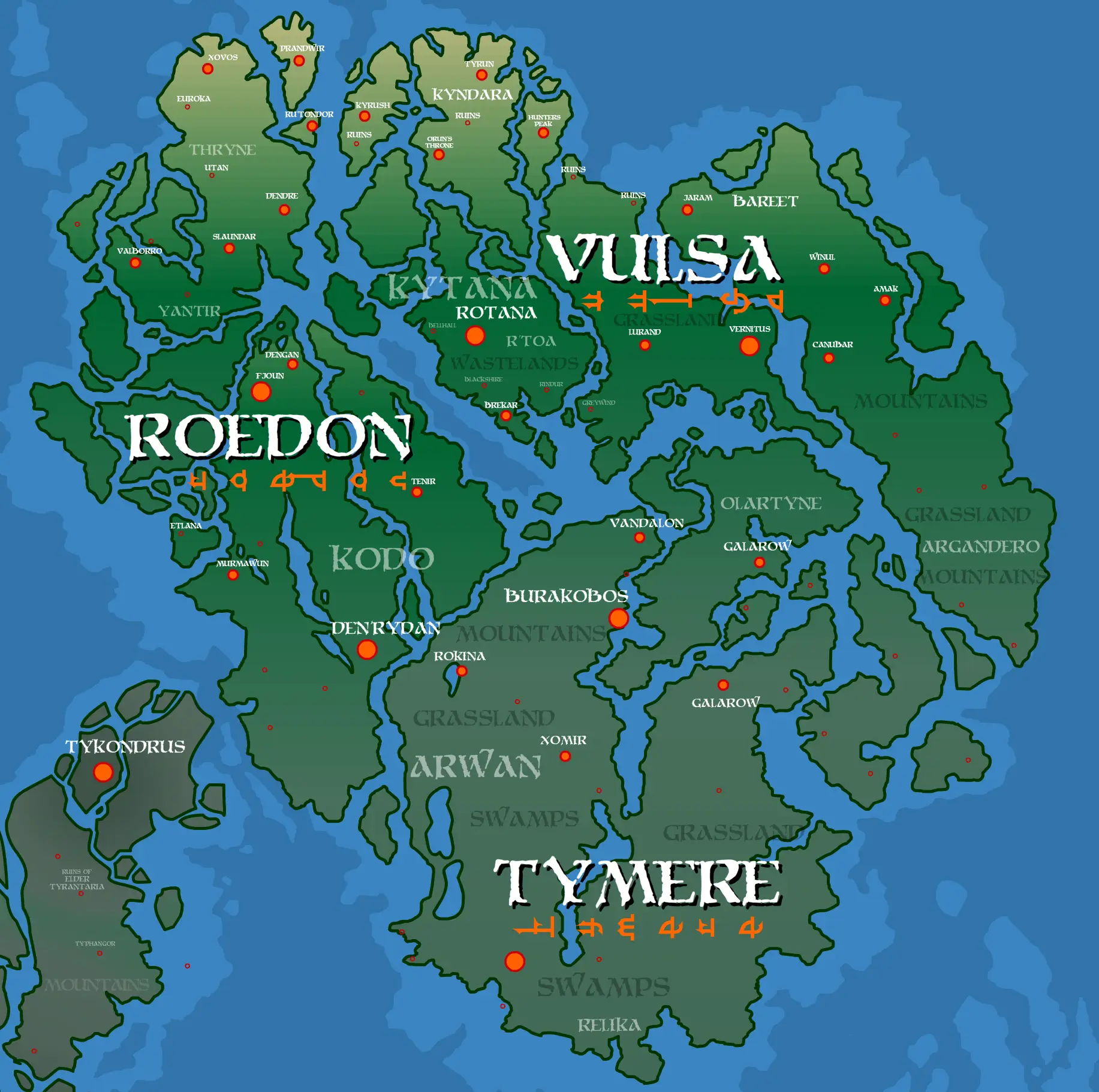Tymere stands as a land that mistakes endurance for stability. It was never broken as Vulsa was, nor cursed as Roedon became—its wounds were not cataclysmic, but septic.

The earthquakes still come, rattling the ground with a kind of weary persistence, but they no longer shape the land as much as they remind its people that the gods once cared enough to strike it. The true rot lies not beneath the soil, but within its courts and coin houses. Tymere has been rich for too long without ever learning how to be wise. It is a nation of inheritance without understanding, of empires that have forgotten the weight of conquest, content to measure their worth in gold rather than glory.

On the surface, it gleams—a realm of silken trade routes, perfumed courts, and narrow marble streets that lead to terraces overlooking endless green. It boasts wealth, art, and armories of fine steel, but this splendor is false light glinting off stagnant water. The money moves in circles, enriching the same dozen houses that own the land, the roads, and the very right to move between them. A traveler is taxed for breathing the air too long in one duchy, fined for crossing into another without the proper sigil. Corruption is no longer a crime—it is the bloodstream of the realm.
The northern lands of Tymere are breathtaking, if one can see them through the mists. Towering forests, steep mountains with ribbons of mist flowing through their ravines, and rivers that gleam like molten silver beneath the sun. These are lands where the air still feels holy, where the soil hums faintly with old magic. Villages cling to the roots of cliffs, and shepherds speak of spirits in the rain that whisper of better times. But this beauty is cut by fear—the law ends where the road fades, and the road always fades sooner than one expects.
The cities are another matter entirely: decadent, cruel, and self-absorbed. Great stone citadels overlook sprawling slums, and within their walls, courtiers trade assassination for affection, bribes for titles, flesh for privilege. The noble houses—bloated and interbred—pretend at unity when a foreign ambassador visits, but tear at one another’s throats the moment his ship leaves the harbor. They plot endlessly—against each other, against Vulsa, even against their own kin.

Tymere’s hatred of Vulsa is old and bitter. To the Tumerians, the wolves of the north represent everything they fear: discipline, faith, and strength unbent by gold. They will never admit it, but they dread Vulsa’s shadow. They see in the wolves what they once were, before decadence set in, before their borders became lines of taxation instead of defense.
Beyond the gilded cities lie the rural stretches—villages of wood and mud, more loyal to their local strongmen than to any crown. Farmers till poisoned soil near the southern edges, where volcanic breath still seeps from the wounds of the earth. The skies there are copper-red, and the nights smell of sulfur. These southern coasts bear eerie resemblance to the ruined continents beyond the sea—Drael’s broken sisterlands, where glassy plains of ash still shimmer from ages-old fire.
In Tymere’s heart, however, the people still live as if nothing is wrong. They feast, they fuck, they bribe, they sing. They build statues of themselves and call it civilization. Yet the dogs of war gather on their borders—Vulsan scouts in the mountains, Roedan raiders watching the trade roads, even the mercenaries within their own cities waiting for a chance to carve out kingdoms of their own. Tymere stands not as a dying empire, but as a drunk one—laughing, staggering, unaware of the cliff’s edge behind its laughter.
